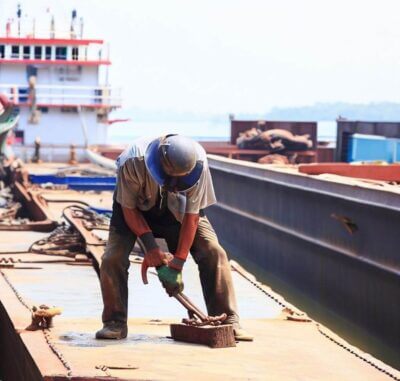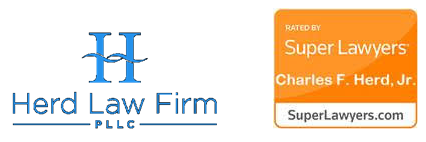The LHWCA: What You Need to Know
 If you work in the maritime industry, you may have heard of the Longshore and Harbor Workers’ Compensation Act (LHWCA). But what is it, and how does it affect you?
If you work in the maritime industry, you may have heard of the Longshore and Harbor Workers’ Compensation Act (LHWCA). But what is it, and how does it affect you?
What is the LHWCA?
The LHWCA is a federal law that provides for the payment of compensation, medical care, and vocational rehabilitation to workers disabled from on-the-job injuries that occur on adjoining areas customarily used in the loading, unloading, repairing, or building of a vessel, or sometimes on navigable water. The LHWCA also provides for payment of survivor benefits to dependents if the work injury causes, or contributes to, the employee’s death. These benefits are typically paid by the self-insured employer or by a private insurance company on the employer’s behalf. The term “injury” includes occupational diseases, disabilities, and illnesses arising out of employment-related damage to your health.
Who is covered by the LHWCA?
The LHWCA covers employees in traditional maritime occupations such as longshore workers, ship-repairers, shipbuilders or ship-breakers, and harbor construction workers. The injuries must occur on the navigable waters of the United States or in the adjoining areas, including piers, docks, terminals, wharves, and areas used in loading and unloading vessels. Non-maritime employees also may be covered if they perform their work on navigable water and their injuries occur there.
What are the Longshore Act Extensions?
Congress extended the LHWCA to include other types of employment. Employees covered by these extensions are entitled to the same benefits, and their claims are handled in the same way as Longshore Act claims. These extensions are:
- The Defense Base Act (DBA), which covers workers employed at U.S. military bases overseas and those working under U.S. government contracts for public works or national defense outside the U.S.
- The Outer Continental Shelf Lands Act (OCSLA), which covers workers employed on offshore platforms on the Outer Continental Shelf of the United States.
- The Nonappropriated Fund Instrumentalities Act (NFIA), which covers civilian employees of nonappropriated fund instrumentalities of the Armed Forces (such as military exchanges and morale, welfare, and recreation facilities).
- The District of Columbia Workmen’s Compensation Act (DCCA), which covers private-sector workers employed in the District of Columbia prior to July 26, 1982.
 How do I file a claim under the LHWCA?
How do I file a claim under the LHWCA?
If you are injured at work or suffer from an occupational disease, you should notify your employer as soon as possible. You also should seek medical attention and follow your doctor’s instructions. You have one year from the date of injury or last payment of compensation to file a written claim with the Division of Longshore and Harbor Workers’ Compensation (DLHWC), a division of the Office of Workers’ Compensation Programs of the United States Department of Labor. You can find the claim forms and instructions on how to file them on the DLHWC website. You can also contact your nearest DLHWC district office for assistance.
What benefits can I receive under the LHWCA?
If your claim is accepted, you may be entitled to receive:
- Compensation for lost wages due to temporary or permanent disability. The amount of compensation depends on your average weekly wage and the degree and duration of your disability.
- Medical care for your work-related injury or illness. You have the right to choose your treating physician and obtain necessary medical services and supplies.
- Vocational rehabilitation services to help you return to suitable employment if you are unable to perform your usual work due to your disability.
- Death benefits for your eligible survivors if your work injury causes or contributes to your death. These benefits include funeral expenses and compensation for loss of financial support.
What are my rights and responsibilities under the LHWCA?
As an employee covered by the LHWCA, you have certain rights and responsibilities. Some of them are:
- You have the right to file a claim for benefits if you are injured at work or suffer from an occupational disease.
- You have the right to receive prompt and proper medical care for your work-related injury or illness.
- You have the right to choose your treating physician and change your physician once with the approval of the DLHWC or your employer.
- You have the right to receive compensation for lost wages due to your disability and vocational rehabilitation services if eligible.
- You have the right to be represented by an attorney of your choice at any stage of the claim process.
- You have the right to appeal any decision made by the DLHWC or an administrative law judge to the Benefits Review Board, the U.S. Court of Appeals, and the U.S. Supreme Court.
- You have the responsibility to notify your employer as soon as possible after an injury or illness occurs at work.
- You have the responsibility to file a written claim with the DLHWC within one year from the date of injury or last payment of compensation.
- You have the responsibility to cooperate with your employer and the DLHWC in the investigation and processing of your claim.
- You have the responsibility to comply with your doctor’s instructions and attend medical appointments as scheduled.
- You have the responsibility to report any changes in your medical condition, employment status, or income to your employer and the DLHWC.
 Where can I get more information about the LHWCA?
Where can I get more information about the LHWCA?
If you have any questions or concerns about your rights and benefits under the LHWCA, you can contact your nearest DLHWC district office for assistance. You can find their contact information on the DLHWC website. You also can visit the website for more information about the LHWCA and its extension acts, such as:
- The laws, regulations, and related materials that govern the LHWCA and its extension acts.
- The forms and instructions that you need to file a claim or report an injury under the LHWCA and its extension acts.
- The frequently asked questions (FAQs) that provide answers to common questions about the LHWCA and its extension acts.
- The publications and resources that offer guidance and information on various topics related to the LHWCA and its extension acts.
The LHWCA is a complex and comprehensive law that protects the rights and interests of maritime workers and their families. By understanding its provisions and procedures, you can ensure that you receive the benefits that you deserve in case of a work-related injury or illness.
In addition to the LHWCA, the injured worker also may have a separate cause of action, against a ship or its owner or another third party (not the employer), if that ship or third party was negligent, and that negligence caused or contributed to the workers injury or death.
Why Choose Us as Your LHWCA Attorney?
If you are looking for a LHWCA attorney who can handle your case with skill and compassion, you should consider us. We at the Herd Law Firm represent injured seamen and maritime workers. We know how to navigate the complex laws and regulations that govern maritime injuries and will fight for your rights.
Sources:
- Division of Federal Employees’, Longshore and Harbor Workers’ Compensation (DFELHWC) U.S. Department of Labor https://www.dol.gov/agencies/owcp/dlhwc/lhwca
- Longshore and Harbor Workers’ Compensation Act Frequently Asked Questions U.S. Department of Labor https://www.dol.gov/agencies/owcp/dlhwc/FAQ/lsfaqs
- Longshore and Harbor Workers’ Compensation Act Definition – Investopedia https://www.investopedia.com/terms/l/longshore-and-harbor-workers-compensation-act.asp
- OWCP – U.S. Department of Labor – DOL https://dlhwc.dol.gov/
- Longshore and Harbor Workers’ Compensation Act – Wikipedia https://en.wikipedia.org/wiki/Longshore_and_Harbor_Workers%27_Compensation_Act







